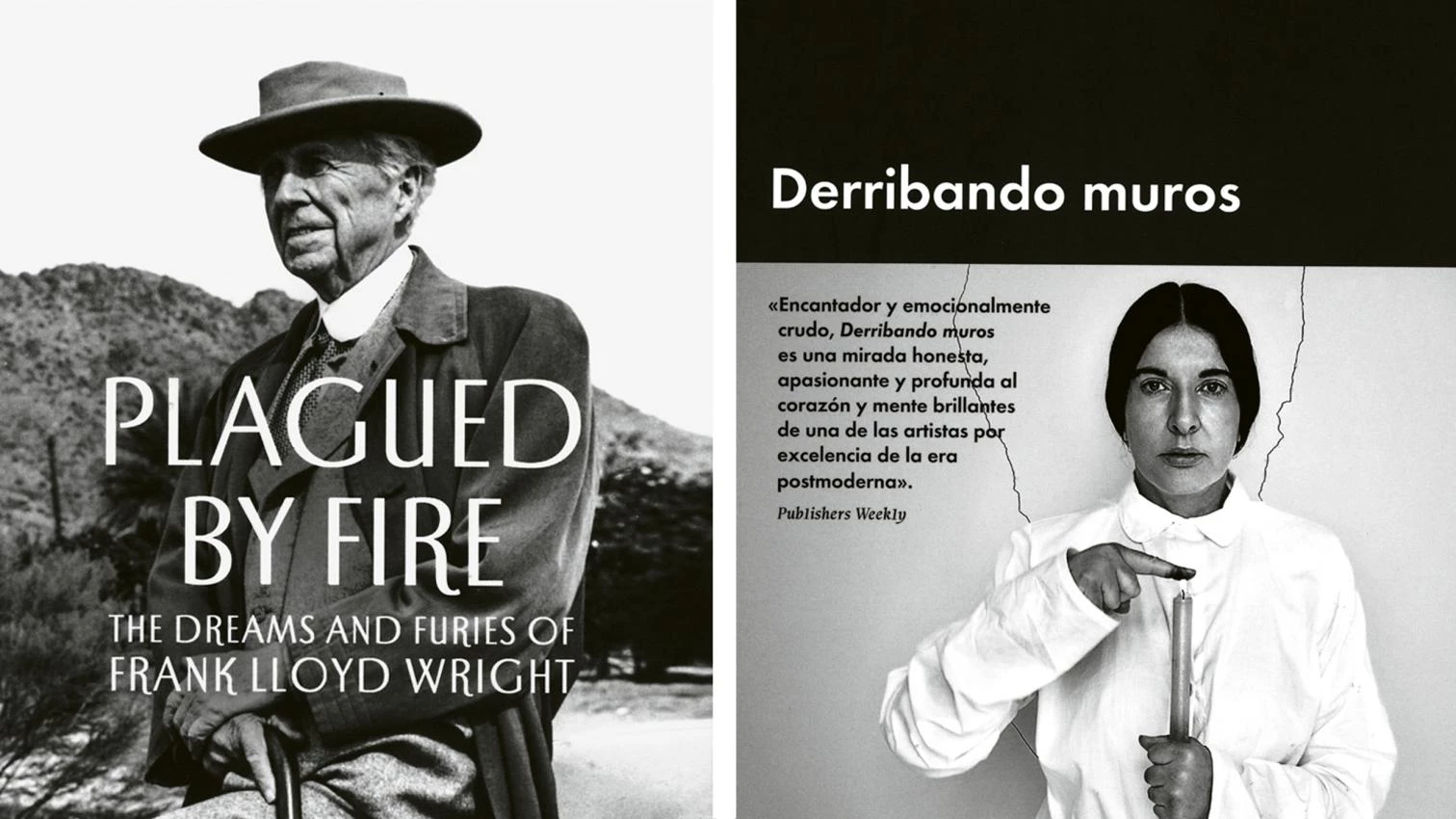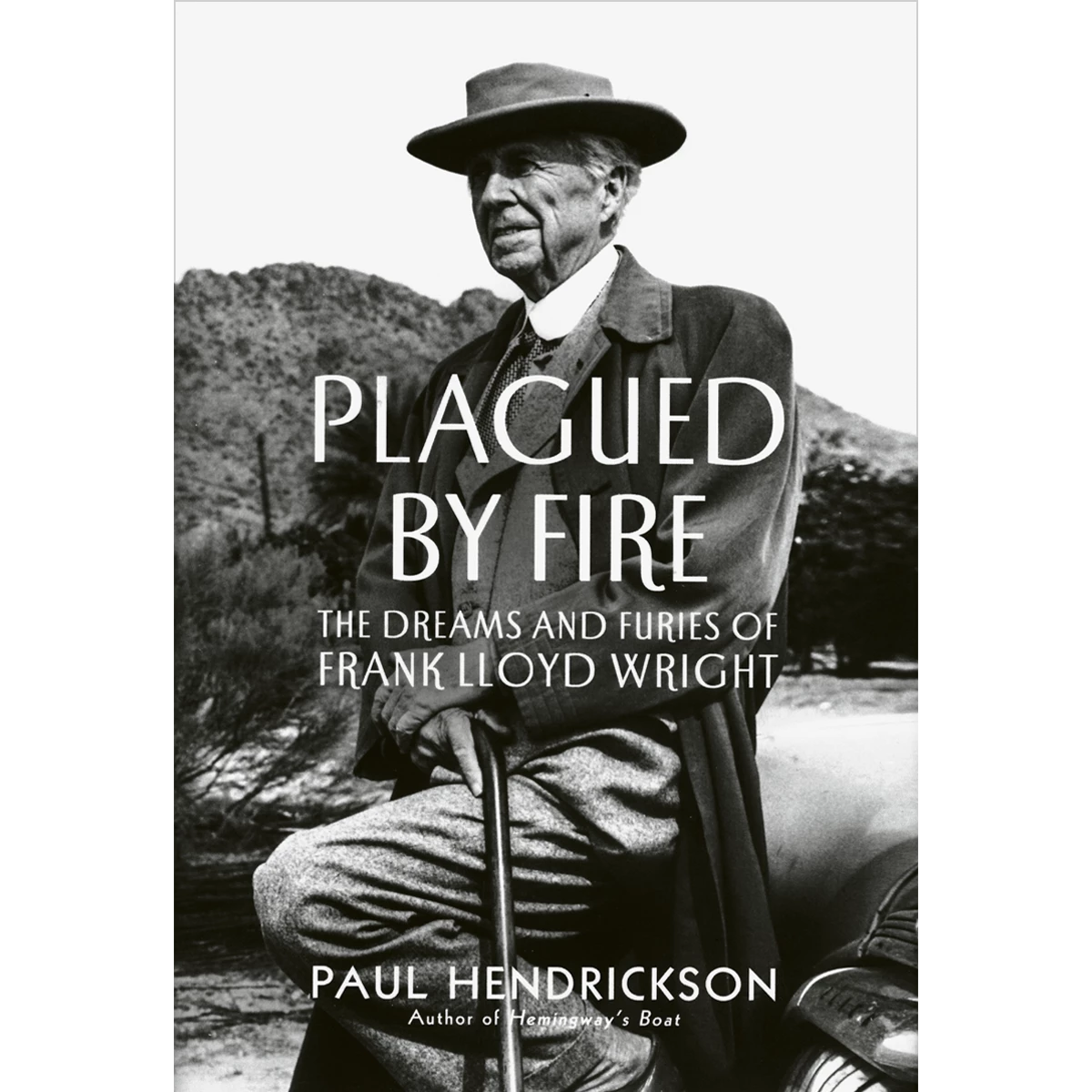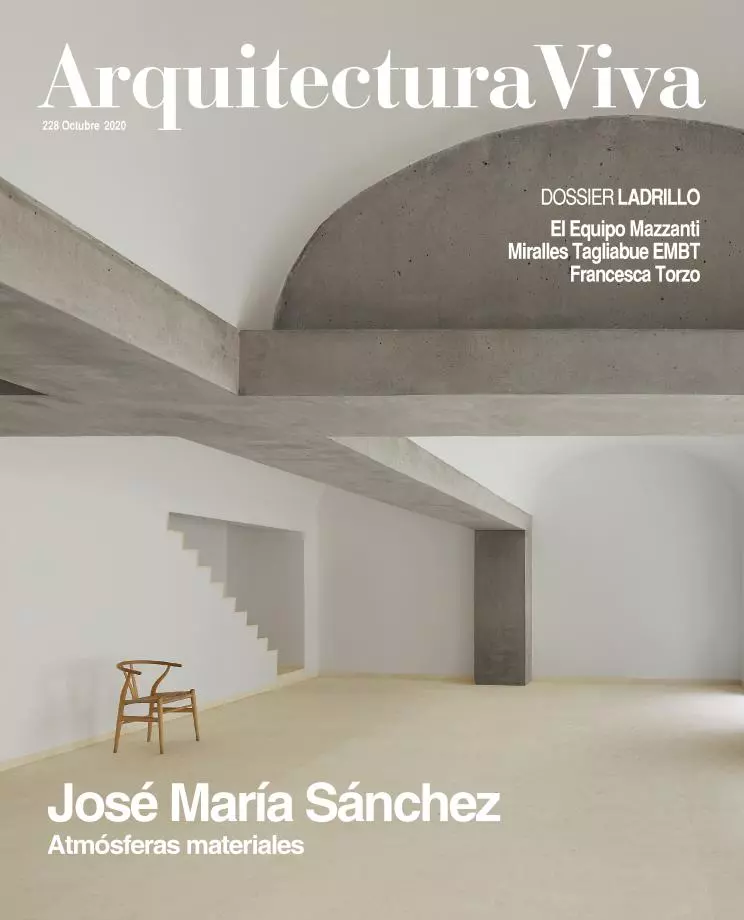
Both Frank Lloyd Wright and Marina Abramović led extreme lives, but the latest publications that document them could not be more different. The most recent biography of the American architect is a torrential text – with a rather baroque language and a pyrotechnically disperse narrative – that branches out into trivial anecdotes or references to the personal adventures of the author, Paul Hendrickson, a journalist who has also written on Hemingway or Robert McNamara; and the autobiography of the Serbian artist – released in 2016 as Walk Through Walls: A Memoir and now translated into Spanish by Santiago González – is in contrast a transparent, intimate, confessional account of the life and creative trajectory of one who has described herself as the ‘grandmother of performance art,’ and is a good introduction to the significance of her work in the contemporary art scene.
The same does not go for Plagued by Fire, reading which requires prior knowledge of Wright’s life, told here in discontinuous and not necessarily chronological flashes, always choosing the more melodramatic episodes and recounting them with feverish theatricality and sensationalist detail. This prose has been criticized as “detail masquerading as depth,” and Hendrickson’s formidable research – which leads him to argue repeatedly with Wright’s previous biographers – results in more empty verbiage than narrative substance. In the telling of incidents like the Spring Green crimes and fire, with which the book begins, or the young Wright’s relationship with the architect Cecil Corwin, suggested as homoerotic, fact and speculation mix, giving information in crumbs the way a mystery novel would, and using the first person to establish a rapport with the reader.
‘The Dreams and Furies’ of this Wright in flames, focused more on his epic personality than on his architectural oeuvre, drink nevertheless from good fountainheads, and the author explains his debt to the likes of Meryle Secrest, Robert Twombly, Brendan Gill, Ada Louise Huxtable, Neil Levine, Kathryn Smith, and Anthony Alofsin (the latter three’s newest titles are reviewed in Arquitectura Viva 181, 200, and 216), in addition to Wright’s 1932 autobiography, an essential source despite its numerous inexactitudes, and whose lyrical grandiloquence inspires Hendrickson’s dramatic and confidential tone.
While such whispering closeness seems uncomfortable in biographies – in which, until the rise of postmodern autofiction, the author was preferably invisible – it is fitting and inevitable in memoirs, and Abramović undresses to tell it all, from the traumas of her childhood to the triumphs of her prime, in the same way that the artist bares her body in so many of her performances. More mythological than reflective, and sometimes slipping into New Age mysticisms, the text is nonetheless a readable, moving, enjoyable story of the love affairs and break-ups of one who is now a diva, and of her endeavors in the world of art, where the dangerous intensity of her shamanic exorcisms made her a venerated figure. With her reckless courage in the face of violence and death, the artist reminded us of the fragile vulnerability of our bodies, and now she invites us to continue demolishing emotional walls in an honest walk through her extreme life.







